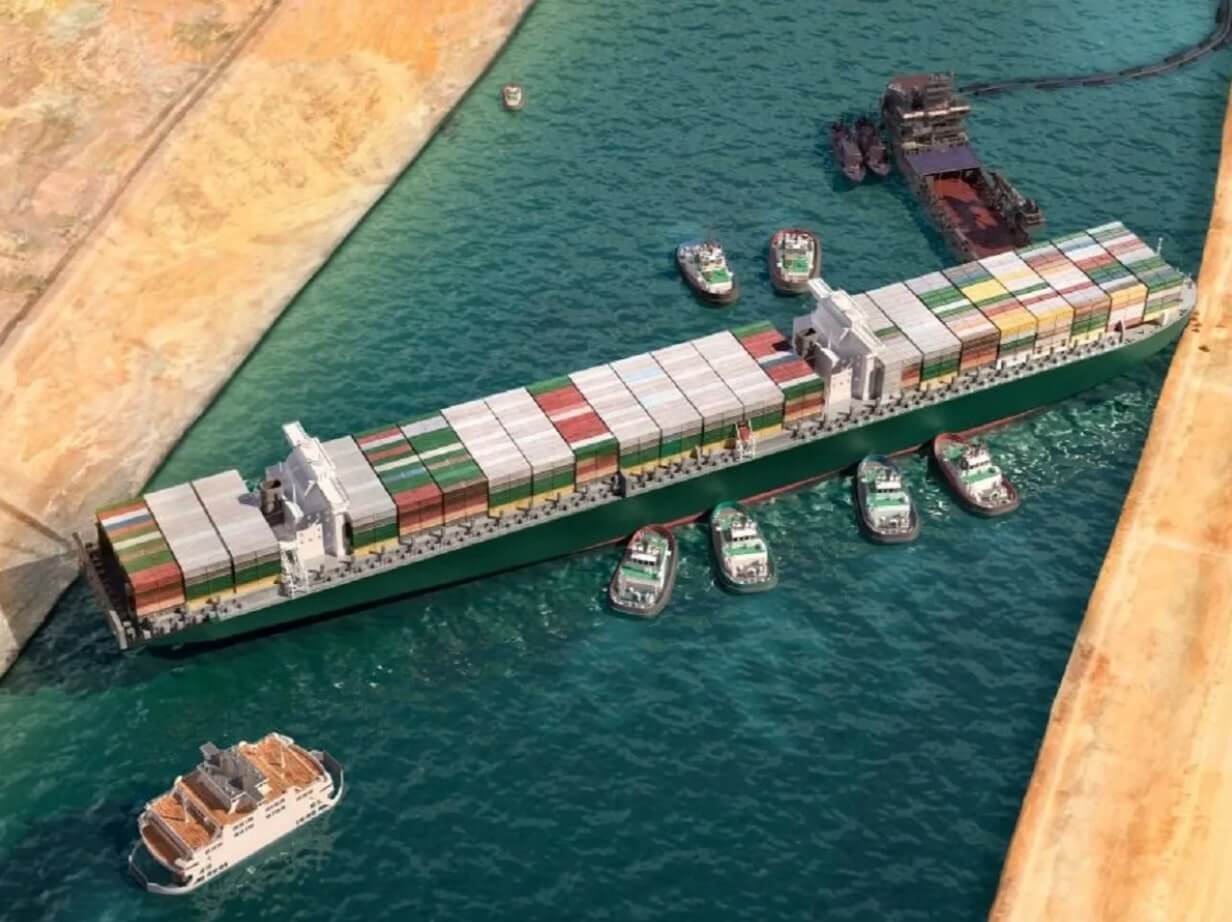The Ever Given incident may cost $2Bn in claims

June 16, 2022
According to a top French reinsurer, the Ever Given containership’s six-day blockade of a crucial maritime commerce corridor last year might result in more than $2 billion in claims. The Ever Given, which is 400 metres long and weighs 200,000 tonnes, went aground in March while being piloted through the Suez Canal on its way to Rotterdam, Netherlands.
One of the most important maritime trade routes connecting Asia, the Middle East, and Europe is the canal, which is 120 miles long but only 205 metres wide and 24 metres deep. The Ever Given became stranded at an angle, obstructing the passage of other ships.
“A major, direct consequence of the Ever Given disaster is supply-chain interruption,” says Gregory Delaisse, Scor’s global head of maritime & transport for speciality insurance. Shipping, according to the corporation, is a complicated sector that employs millions of people worldwide and serves as the backbone of international trade and commerce.
90% of all consumer goods, whether as raw materials, components, or finished goods, travel by sea at some point during their manufacture and delivery. Some items go through numerous phases in the production process and so travel around the world multiple times before reaching the consumer.
“The grounding of the Ever Given has revealed the underlying truth of our economic system,” argues Scor’s chief underwriting officer for marine and energy reinsurance, Sylvain Gauden. According to Scor, 52 ships sail through the Suez Canal every day.
At 20 knots, one of these ships can round the world in a few weeks. A ship charter may cost up to $100,000 per day. Someone is depending on each of the 15,000 to 20,000 containers they transport, and time is of the importance. Some of the items are perishable, while others aren’t.
Mr Delaisse says, “As re/insurers, we need to evaluate our possible exposures. Container ships are becoming bigger, yet there is a container scarcity at the same time. As a result, some shippers are transporting cargo on insufficient bulk carriers.”
According to Scor, up to 400 ships were halted in total. With the canal closed, several shipping corporations were investigating – and perhaps beginning on – an other route via the Cape of Good Hope, despite the long and costly consequences.
Scor said that the Ever Given event is compounded by the fact that all of the parties involved – the ship owner, the charterer, the cargo owners, and even the Suez Canal – have insurance coverage from all over the world. All of them are attempting to recoup at least part of their losses.
Physical damage (to the Ever Given), loss of income (on the part of the Suez Canal Authority), expense of salvage operations and business interruption (for owners and charterers of the stopped boats), loss of perishables and cargo delays, as well as harm to the canal itself, according to Scor.
Mr Gauden explains, “Understanding the effects of such an occurrence necessitates having a comprehensive picture.” “Who are the stakeholders? Which insurance coverage will be able to help? What is the extent of their exposure? How much will this set you back? All types of maritime insurance are affected, and the stakes are high and sometimes conflicting.”
Scor predicted that settling the Ever Given’s claims would take several years, and that the process would contain a lot of argument over who is responsible, noting that the question of obligations and applicable rules in today’s global marine environment is complicated.
Click here to join our Telegram chanel
You will get information, news, and support related to Merchant Navy.
